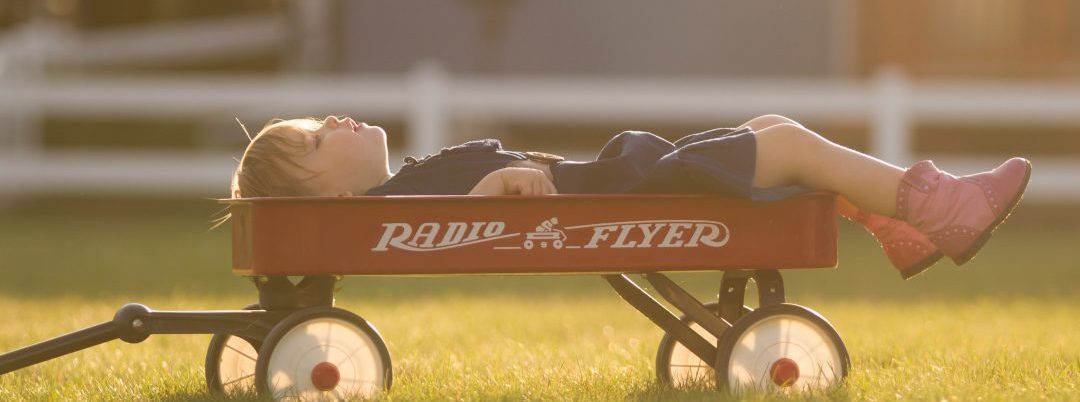
Parenting is unlike any other job: it’s time-consuming, it’s tiring, and it’s hard work. Okay, that’s pretty much the job description for every job out there—but in parenting, there’s a whole lot more at stake. Another person’s life is in your hands; not to mention, a person that you love and care for. And your greatest hope is that you raise them to be happy and healthy. If only there was some magic formula, right? While I’m sorry to say there is no magic potion, there are healthy habits you can instill into your child, which will prove to benefit them for years to come. One being the practice of mindfulness, according to Allison Agliata.
Allison Agliata is a clinical psychologist specializing in parent/child relationships, as well as the Head of Middle School at an independent school in Tampa, FL. Furthermore, she holds a certification in life coaching, and runs a business called C3: Connect, Coach, Cultivate. To say the very least, these diverse, yet interconnected roles have taught her all about happy, healthy lifestyles—and she’s found that mindfulness is key, which she says is important to instill into a child’s life as well:
“As a parent, we always hope for peace and joy for our children. We focus on providing a good education and enriching their lives with a multitude of extracurricular activities. One area we often forget to instill is mindfulness: an opportunity to slow down, reflect, be aware of what is going on with us and set a positive frame of mind. When I noticed my own family trying to maintain an unsustainable pace and stressing out because of it, I decided to put more energy into infusing a few of my tools to use in our own household.”
Start the Day Off Right
Agliata says that you should teach your child to start the day off right by taking a moment for him or herself. They might use this time to recollect their thoughts or simply take a break from playing. “Being the head of a middle school, I have found how important this brief pause is for kids,” she says. “At the beginning of the year, my faculty decided they would commit to having a silent entrance from recess and practice a mindful minute when the students get to their first class. Each teacher is provided the flexibility to guide their students in their own manner. It may be a silent moment, sometimes music is played, and sometimes it is a guided meditation. Regardless of the approach, we have noticed a tremendous impact in their behavior for the latter half of the day.”
Employ a Nighttime Routine
It will also prove beneficial to incorporate mindfulness into your child’s nighttime routine. Agliata recommends taking the time to reflect with them: “At night, most of us have a little more time to slow down, at least after all the lessons, dinner, homework, etc. I know you are tired, but this is the time to really dedicate to nurture a mindfulness routine that your children will carry with them through adulthood and hopefully to their own children. For my children, mindfulness means taking time to reflect on our day. In order to prompt their thinking, I often ask specific questions. Here are a few:
- What did you do that was kind today?
- Were you a positive leader in any way?
- Did you ask any good questions today?
- Were you better today in some way than yesterday?
- What do you think you could improve on, based on today?
Depending on their mood (and mind), sometimes I ask one, sometimes all of them, but I love that they know we are going to take the time together to focus on the goals that are important in life. I rarely ask about academics at this time unless they bring it up because this is the time I reserve my energy for developing kind, empathetic, open-minded, and aware kids, not just smart kids.”
Be a Good Role Model
Now, perhaps the most important step in introducing mindfulness into your child’s life is showing them that you do it too. Kids are very observant, and they’re also very impressionable. Utilize this to your benefit by practicing mindfulness openly and demonstrating just how important the practice is—be a good role model:
“Take the time out of your day for your own mindful minutes, talk with them about your own reflections and self-improvement goals, journal in front of them, and show them that taking time for yourself is a positive habit. Having a stressed out, snippy parent will breed similar behaviors in your children. Taking care of yourself and living an authentic, peaceful life is the best gift you can give your children.”
Let’s keep in touch! Sign up to receive our newsletter:
Start a Relationship with An Exceptional Counselor
- Skilled and caring professional counselors
- Accepting all major and most insurances
- High-touch customer service & premium benefits
- Same- or next-day appointments
- Ultra-flexible 23.5hr cancellations













